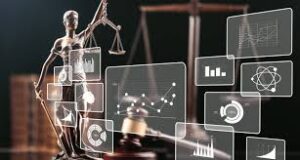The Nigerian Bar Association (NBA) has raised ethical concerns about the use of Artificial Intelligence (AI) by lawyers in Nigeria, warning that improper use of the technology could lead to violations of professional rules. The NBA recently released new guidelines to help legal professionals navigate the challenges and opportunities posed by AI.

While AI offers significant potential to improve the efficiency, accuracy, and accessibility of legal services, the NBA is worried about its impact on the profession. The immediate past NBA President, Yakubu Maikyau, emphasized that the integration of AI into legal practices “raises complex ethical, legal, and regulatory questions that demand careful consideration.” He highlighted the need for lawyers to maintain human oversight, ensure data privacy, and uphold transparency in decision-making processes when using AI.
The NBA’s guidelines stress the importance of responsible AI adoption in the legal profession. According to the guidelines, AI can be a valuable tool for Nigerian lawyers, helping them automate repetitive tasks such as contract reviews. This automation could free up time for lawyers to focus on more complex legal matters that require their expertise and judgment.
However, the NBA also cautioned that overreliance on AI might compromise a lawyer’s duty to exercise diligence, caution, and care towards their clients. “Given that AI cannot be trusted to make correct decisions or provide accurate information, a lawyer has a duty not to rely fully on AI; otherwise, he violates his duty of care under Rule 14(1) of the Rules of Professional Conduct for Legal Practitioners,” the guidelines state.
The NBA also raised concerns about the potential for AI algorithms to inherit biases from the data on which they are trained. This could lead to AI perpetuating discrimination or suggesting unlawful actions, which would violate Rule 15(3)(h) of the Rules of Professional Conduct. Lawyers are encouraged to be aware of these potential biases and to critically evaluate AI-generated outputs to ensure they comply with ethical and legal standards.
Moreover, the guidelines warned that some AI tools could be misused to generate or manipulate evidence to support a particular legal position. For example, AI could be used to create an image showing a client at a specific location as an alibi in a criminal trial, or to fabricate a witness statement by training the AI on samples of the witness’s voice or writing. Such practices could violate Rule 15(3) of the Rules of Professional Conduct. The NBA advises lawyers to ensure that any evidence they use or retain does not fall into these categories.
The concerns raised by the NBA are part of a broader global debate about the ethical use of AI. While AI is increasingly being adopted across various industries, ethical issues such as data privacy and the potential loss of human control over autonomous systems are significant concerns for many users. AI systems often require access to large amounts of data, including sensitive personal information, which can pose privacy risks. As AI becomes more advanced and autonomous, there are also fears about the loss of human oversight and decision-making.
The NBA’s new guidelines on AI usage reflect the need for caution and responsibility as the legal profession navigates the challenges posed by technological advancements. By setting clear standards and encouraging careful consideration of AI’s ethical implications, the NBA aims to ensure that Nigerian lawyers can leverage AI’s benefits while upholding their professional obligations and ethical standards. The NBA’s approach underscores the importance of balancing innovation with the duty to maintain the integrity and fairness of the legal profession.




